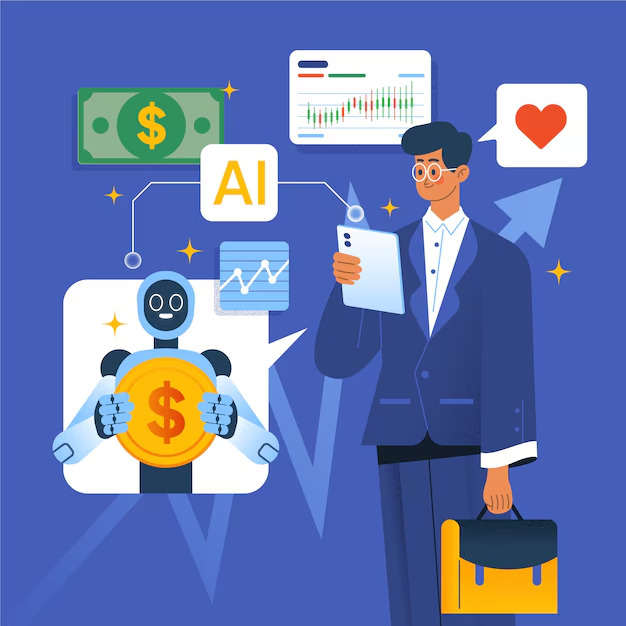Trends and Strategies for 2025 and Beyond
Digital marketing is evolving at an unprecedented rate, driven by new technologies, changing consumer behaviors, and innovative platforms. Businesses that want to stay ahead must keep up with these trends to remain competitive and engage their audiences effectively. As we look toward 2025 and beyond, digital marketing is set to become even more personalized, data-driven, and immersive.
In this blog, we’ll explore some of the most important digital marketing trends, the role of AI, the rise of video content, voice search, and much more. Whether you’re a small business owner, a marketing professional, or an entrepreneur, understanding these trends will help you create a winning marketing strategy.

1. Artificial Intelligence (AI) in Digital Marketing
AI is transforming digital marketing by enabling businesses to analyze data faster, automate processes, and personalize customer experiences. Chatbots, predictive analytics, and AI-driven content creation are just the beginning.
How AI is Changing Digital Marketing:
- Chatbots and Customer Service: AI-powered chatbots can handle customer inquiries 24/7, providing instant responses and improving engagement.
- Personalization: AI helps analyze consumer behavior, allowing brands to deliver tailored recommendations and messages.
- Content Generation: Tools like ChatGPT can assist in writing blogs, social media posts, and even video scripts.
- Predictive Analytics: AI helps brands forecast trends and customer behaviors, enabling more effective marketing strategies.
What You Can Do:
- Integrate AI-driven tools into your marketing strategy.
- Use AI to analyze customer data and improve personalization.
- Automate repetitive tasks to focus on high-value activities.

2. The Rise of Video Marketing
Video content is dominating digital platforms, with platforms like TikTok, YouTube, and Instagram Reels leading the way. Consumers engage more with video than any other type of content, making it essential for businesses.
Why Video Marketing Matters:
- High Engagement Rates: People are more likely to watch and share videos than read text-based content.
- SEO Benefits: Google prioritizes video content in search rankings.
- Better Storytelling: Video helps brands connect emotionally with their audience.
Video Marketing Strategies:
- Create short-form videos for social media.
- Use live streaming to engage with your audience in real time.
- Invest in interactive and 360-degree videos for an immersive experience.
3. Voice Search Optimization
With the growing use of smart speakers like Amazon Alexa and Google Home, voice search is becoming an essential part of digital marketing.
How Voice Search is Changing SEO:
- Conversational Keywords: Users speak differently than they type, so optimizing for natural language queries is key.
- Local SEO Importance: Many voice searches are location-based, making local SEO more crucial than ever.
- Featured Snippets: Google often pulls answers from featured snippets for voice search results.
What You Can Do:
- Optimize your website for voice search by including natural language phrases.
- Focus on local SEO and ensure your business information is up-to-date.
- Structure content with question-and-answer formats to increase chances of appearing in voice search results.
4. Social Commerce and Influencer Marketing
Social media platforms are becoming e-commerce hubs, with Instagram, Facebook, and TikTok integrating shopping features.
The Power of Social Commerce:
- Seamless Shopping Experience: Users can purchase products without leaving the platform.
- Higher Conversion Rates: People trust social proof and recommendations from influencers.
- Targeted Advertising: Platforms offer highly detailed audience targeting.
What You Can Do:
- Partner with influencers to promote your products.
- Use shoppable posts and integrate e-commerce with your social media platforms.
- Leverage user-generated content to build trust and authenticity.
5. Interactive Content and Gamification
Consumers expect more than just static content. Interactive content and gamification can boost engagement and encourage participation.
Examples of Interactive Content:
- Quizzes and Polls: Encourage audience interaction and gather valuable data.
- Augmented Reality (AR): Allow users to try products virtually before buying.
- Live Q&A Sessions: Engage your audience in real time.
What You Can Do:
- Create engaging quizzes and surveys related to your industry.
- Implement gamification elements like rewards and badges.
- Experiment with AR features on social media platforms.

6. Email Marketing 2.0
Email marketing remains a powerful tool, but it’s evolving with AI, automation, and hyper-personalization.
What’s Changing in Email Marketing:
- AI-driven Personalization: Sending tailored recommendations based on user behavior.
- Interactive Emails: Using GIFs, videos, and carousels to enhance engagement.
- Behavioral Triggers: Automating emails based on user actions (e.g., abandoned cart reminders).
What You Can Do:
- Use AI tools to personalize email content.
- Test different subject lines and formats to improve open rates.
- Automate email sequences to nurture leads efficiently.
7. The Importance of Data Privacy
With increasing concerns about data privacy, businesses must be transparent about how they collect and use customer data.
How Privacy Regulations Affect Digital Marketing:
- GDPR and CCPA Compliance: Businesses must follow strict data protection laws.
- End of Third-Party Cookies: Google is phasing out third-party cookies, impacting targeted advertising.
- First-Party Data Collection: Brands must rely on direct customer interactions.
What You Can Do:
- Be transparent about data usage and get explicit user consent.
- Focus on first-party data collection through email sign-ups and loyalty programs.
- Implement privacy-focused advertising strategies.

8. The Growth of the Metaverse
The metaverse is a virtual space where people can interact, work, and shop. Brands are starting to explore its potential for marketing.
How Brands Can Use the Metaverse:
- Virtual Stores: Create immersive shopping experiences.
- Branded NFTs: Offer digital collectibles to engage audiences.
- Virtual Events: Host conferences and product launches in digital spaces.
What You Can Do:
- Stay informed about metaverse developments and explore opportunities for your business.
- Experiment with VR and AR experiences.
- Engage younger audiences by creating digital experiences within metaverse platforms.
Digital marketing is evolving rapidly, and staying ahead requires businesses to embrace new technologies, optimize for emerging trends, and adapt to changing consumer expectations. From AI-driven personalization to interactive content, voice search, and the rise of the metaverse, the future of digital marketing is full of exciting opportunities.
To succeed in 2025 and beyond, businesses must focus on creating engaging, personalized, and immersive experiences for their audiences. By leveraging these trends, you can build a strong digital presence, connect with customers in meaningful ways, and drive long-term growth.
Are you ready to future-proof your digital marketing strategy? Start implementing these trends today and watch your business thrive in the ever-changing digital landscape! Digital marketing is evolving at an unprecedented rate, driven by new technologies, changing consumer behaviors, and innovative platforms. Businesses that want to stay ahead must keep up with these trends to remain competitive and engage their audiences effectively. As we look toward 2025 and beyond, digital marketing is set to become even more personalized, data-driven, and immersive.
In this blog, we’ll explore some of the most important digital marketing trends, the role of AI, the rise of video content, voice search, and much more. Whether you’re a small business owner, a marketing professional, or an entrepreneur, understanding these trends will help you create a winning marketing strategy.
